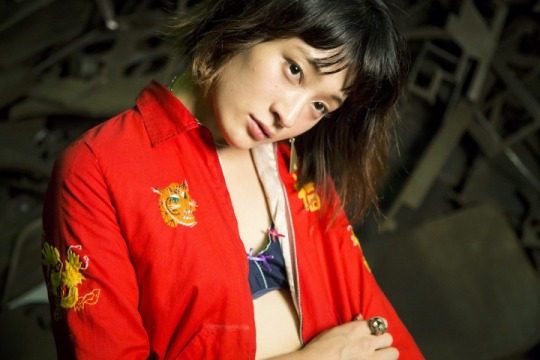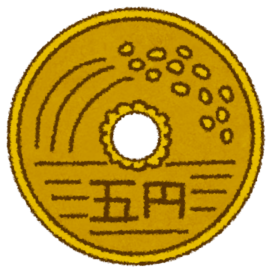Ama-no-Uzume, Waiting for a Taxi
One of my favorite music groups in recent years is Suiyōbi no Campanella. Musically, their style can't really be defined as a single genre. It has elements of club, trip-hop, and EDM. If you're not already familiar with them, their official Youtube channel is well stocked.

Equally eclectic and fun are the lyrics. Consistent throughout all their songs is the focus on a famous person or mythological entity. There are songs about Momotarō, Medusa, the Wright Brothers, Aladdin, Dracula and Audrey Hepburn, to name a few. But these aren't bland reiterations of what makes these subjects famous: most have a twist to make things more interesting or stylish, like Momotarō being a lazy video game addict or Dracula getting by in modern, urban lifestyle.
On their album SUPERMAN, the final track is アマノウズメ Ama-no-Uzume, a track that I found to be particularly clever. The song is a reference to/parody of the legend of Amaterasu and the Cave.

To summarize the original story: Amaterasu, the sun goddess and principal kami in shintō, had hidden herself away in a cave after being grievously insulted by her brother Susano'o. Without the sun, the world was in darkness, and the other kami came together outside her cave to convince her to come out. When she refused, they came up with a plan to lure her out. They started up some raucous entertainment with dancing and music, a party that was hard to ignore. Sure enough, Amaterasu peeked outside, curious about the commotion, and finally exited the cave. A huge stone was rolled into put in place to keep her from retreating back inside. And so sunlight returned to the world.
Suiyōbi no Campanella takes this ancient myth and drops it in the middle of a pounding Tokyo night club, with divine DJs and dancing miko. The song is named after Ama-no-Uzume, the goddess who performed the crazy (and somewhat lewd) dance outside the cave.

Below are the lyrics, which are loaded with references to both shintō deities and a certain famous Tokyo club from the 90′s. I’ve translated them and added notes about all the references. Keep in mind that Japanese lyrics tend to be more vague than their Western counterparts, and so it is here. Many lines may seem like sentence fragments that don’t flow grammatically, but try to think of it more as painting a scene with descriptive phrases rather than explicit statements.
Ama-no-Uzume
宮比神
大宮売神Miyabi-no-Kami
Ōmiyanome-no-Kami¹1. Miyabi-no-Kami & Ōmiyanome-no-Kami - These are both alternate names for Ama-no-Uzume. She is enshrined under each name, respectively, at the Ise and Fushimi Inari Grand Shrines.
芝浦に新しく出来たらしいね
ディスコ 高天原
天岩戸隠れ
巫女がジュリ扇で舞うShibaura¹ ni atarashiku dekita rashii ne
Disuko Takamagahara²
Ama-no-iwato³ kakure
Miko ga juri-sen⁴ de mauLooks like there’s something new in Shibaura
Disco Takamagahara
Hidden in the heavenly cave
The miko dance with Juliana Fans1. Shibaura is an area in Minato-ku, Tokyo. It was the site of the night club from the early 90′s called Juliana’s Tokyo (EN). We’ll be referring back to this a couple more times.
2. Takamagahara - The Plane of High Heaven (日本語), the home of the kami. Here it is used as the name of the discotheque.
3. Ama-no-Iwato - The Heavenly Cave (日本語), where Amaterasu hid in the legend; it may be used here as the name of the VIP room - more on that below
4. Juri-sen - Short for ‘Juliana Sensu (folding fan).’ Juliana’s Tokyo was famous for the girls dancing with feathered folding fans, and so that style has taken its name.回りだすミラーボール
隠れてるアマテラス
踊るウズメ見とれる
八百万パーティーピーポーMawaridasu mirābōru
Kakureteru Amaterasu
Odoru Uzume¹ mitoreru
Yaoyorozu² pātīpīpōThe disco ball spins
Amaterasu stays hidden
Watching, enchanted by Uzume’s dance
The Myriad Party People1. Ama-no-Uzume - Goddess of laughter and celebration (日本語); it was she who danced in front of Amaterasu’s cave to eventually draw the sun goddess out
2. Yaoyorozu - Literally means ‘eight million,’ but is more accurately understood as ‘many and varied.’ It is often used in the phrase Yaoyorozu no Kami (日本語), The Myriad Kami, to refer to the many, many kami throughout Japan as a collective whole.芝浦に新しく出来たらしいね
ディスコ 高天原
天岩戸隠れ
巫女のボディコンスーツShibaura ni atarashiku dekita rashii ne
Disuko Takamagahara
Ama-no-iwato kakure
Miko no bodikon sūtsu¹Looks like there’s something new in Shibaura
Disco Takamagahara
Hidden in the heavenly cave
The miko in their sexy dresses1. Body-con suits - Body-con is short for ‘body conscious’ and refers to sexy, skintight and dangerously short women’s clubwear (link is a little NSFW). These were also a staple of the Juliana Tokyo nightclub.
芝浦に新しく出来たらしいのは
ディスコ 高天原
天岩戸隠れ
巫女が乱れてますShibaura ni atarashiku dekita rashii no wa
Disuko Takamagahara
Ama-no-iwato kakure
Miko ga midaretemasuLooks like there’s something new in Shibaura
Disco Takamagahara
Hidden in the heavenly cave
The miko are looking disheveled※今夜は太陽のSEASON (岩戸)
DJスサノオ アゲる↑ (開けて)
SPタジカラオも脱ぐ (二度見)
アマテラス 徐々にアガル↑↑Konya wa taiyō no SEASON (Iwato)
DJ Susano’o¹ ageru (Akete)
SP² Tajikarao³ mo nugu (Nidomi)
Amaterasu chocho ni agaruTonight it’s the Sun Season (The cave door...)
DJ Susano’o is raising the energy (Open it...)
SP Tajikarao is losing his shirt too (A second glance...)
Amaterasu is getting into it little by little1. Susano’o - Susano’o is kami of storms (日本語) and Amaterasu’s brother, who is the one who insulted her in the original legend.
2. SP - I’m not entirely certain what this means, but anecdotally, after some web searches, I think it’s a special guest or partner of a DJ on stage
3. Tajikarao - Kami of physical power and sports (日本語). In the original legend, it was he who put the large stone in front of the cave after Amaterasu withdrew to prevent her from returningミラーボール回りだして扇子が揺れ
お立ち台¹で熱くなって
VIPルームの明かり消して
フロアに浮かび上がる太陽²
踊り明かしたらアマテラス
手引き岩戸から誘い出した
朝帰り アマノウズメ タクシーを待つMirābōru mawaridashite sensu ga yure
Otachidai de atsuku natte
Bippu rūmu no akari keshite
Furoa ni ukabiagaru taiyou
Odoriakashitara Amaterasu
Tebiki iwato kara sasoidashita
Asagaeri Ama-no-Uzume takushī wo matsuThe mirror ball spins and shines as the fans wave
Things are heating up on the dance stages
The light in the VIP room goes out
And the sun emerges on the dance floor
Amaterasu dances till the morning
Pulled out from the cave
They’re out all night
Ama-no-Uzume waits for a taxi1. Otachidai - Literally, a platform to stand on; refers to the small stages for the gogo dancers at Juliana’s Tokyo and similar clubs
2. These two lines make me think that Ama-no-Iwato, the Heavenly Cave, is used to as the ‘VIP Room’ in the song. As the sun (Amaterasu) joins the dance floor, the lights in the VIP room go out, implying she has left the cave (VIP room) to join the others. Certainly it’s open to interpretation, but that’s my take.※REPEAT
